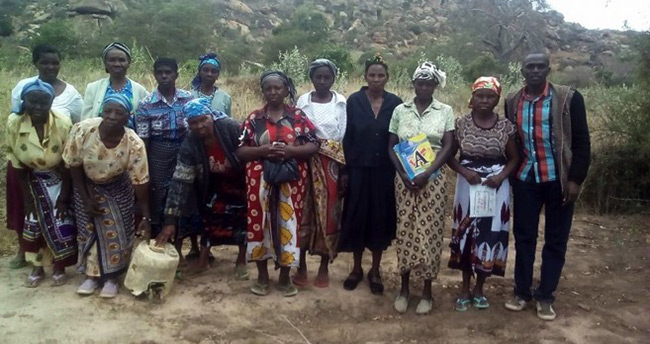Women’s empowerment is crucial to development in any society. To contribute to this objective, the Rhodelias Foundation and Bemidji State University have partnered with the Foundation’s patron, Elias Muindi, who serves as Programme Officer for Kenya MenEngage Alliance (KEMEA) this year in June to start a project to train and encourage a group of widows in the rural village of Mbuinzau, in Makueni County, to rear chickens.
“Bearing in mind that widows experience many challenges in society, this project is aimed at empowering them economically and socially”, says Muindi.
“When I visit widows and speak with them about their lives, they tell me about the daily struggle to give their children a chance at a better life than they had. And a lot of times, one of the most powerful weapons in that struggle is a small flock of chickens’’, he adds.
The reasons advanced by the widows for keeping chickens are that they are easy and inexpensive to take care of. The partnership between Rhodelias Foundation, Bemidji State University and Muindi capitalised on this already existing effort to start an empowerment initiative in the hope that it will result in the economic empowerment of the women.
“Many breeds can eat whatever they find on the ground and only need simple nest as shelter which can be made with local materials. Chickens are a good investment. Suppose a new farmer starts with five hens and one of her neighbours owns a rooster to fertilise the hens’ eggs. After three months, she can have a flock of 40 chicks. Eventually, with a sale price of $5 per chicken – which is typical in Kenya local markets – she can earn more than $1,000 a year. So, chickens are a good source of income because they are easy to sell on short notice to cover day-to-day expenses.”
The project, “Wumiisyo wa aka ndiwa Mbuinzau’’, which means “The patience of widows of Mbuinzau’’, currently has 50 members. Each woman has contributed two chickens towards kick-starting the initiative and Rhodelias Foundation has given $500 to match the women’s contributions to buy 100 more as well as to secure equipment needed for the project. The goal is to grow from 200 chickens to about 2 000 by the end of 2017.
According to Muindi, the programme has been inspired by several studies that show that empowering women results in noticeable empowerment of families and communities. He quotes Melinda Gates of philanthropy organisation, Bill & Melinda Gates Foundation, to illustrate his point. Evidence shows that when women control money, they are more likely than men to spend it on priorities that help fight poverty, like education, health, and nutrition. According to statistics, when a woman controls the family’s income, her children are 20 percent more likely to live past the age of five.
This initiative has potential on a number of fronts. For instance, keeping chickens can help keep children healthy.
“Although eating more eggs – which are rich in protein and other nutrients – can help fight malnutrition, many farmers with small flocks find that it’s more economical to let the eggs hatch, sell the chicks, and use the money to buy nutritious food. But if a farmer’s flock is big enough to give her extra eggs, or if she ends up with a few broken ones, she may decide to cook them for her family.”
The initiative also helps empower women. “Because chickens are small, not too difficult to manage like larger livestock such as goats or cows, and typically stay close to home, women who sell chickens are likely to reinvest the profits in their families”, Muindi says.


